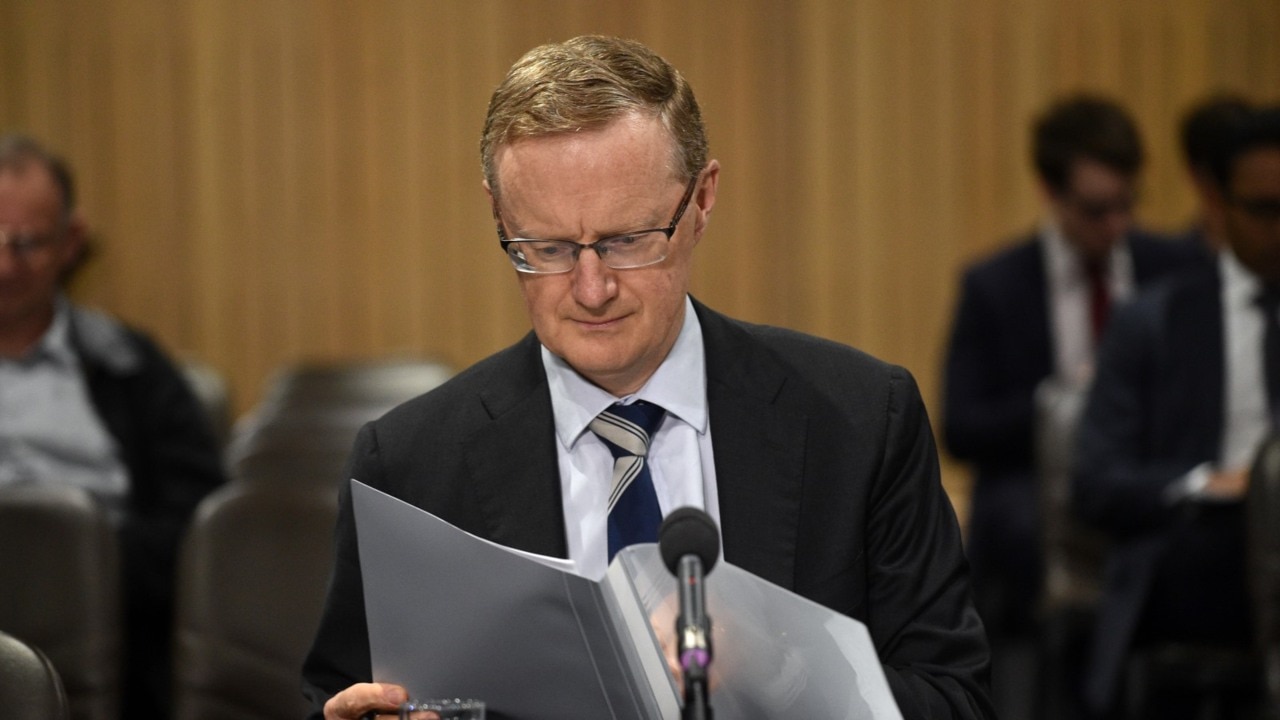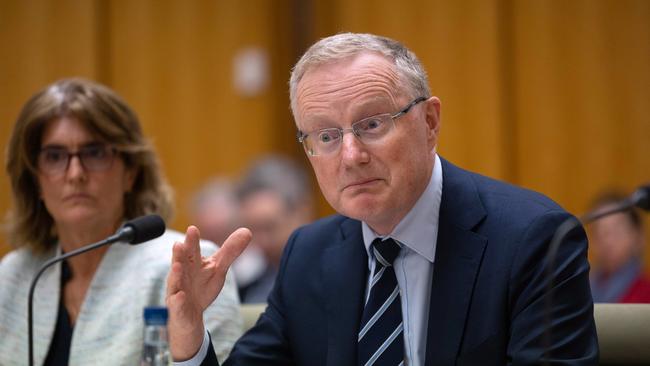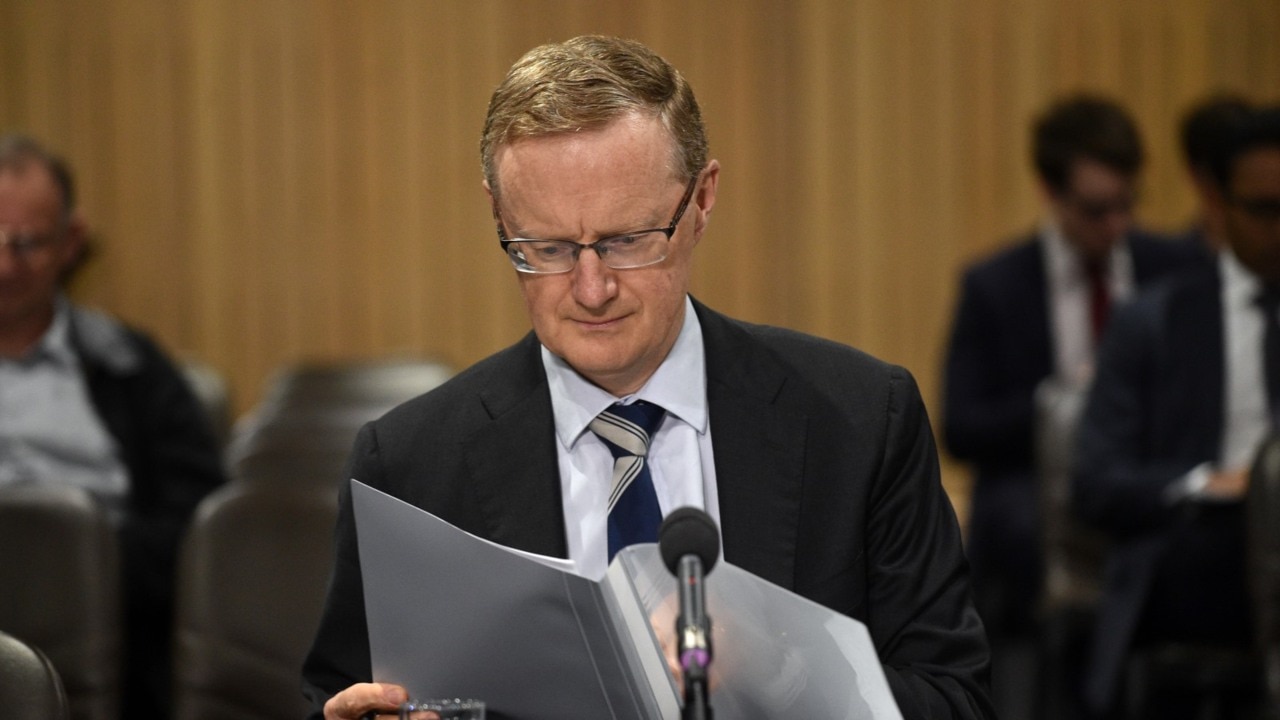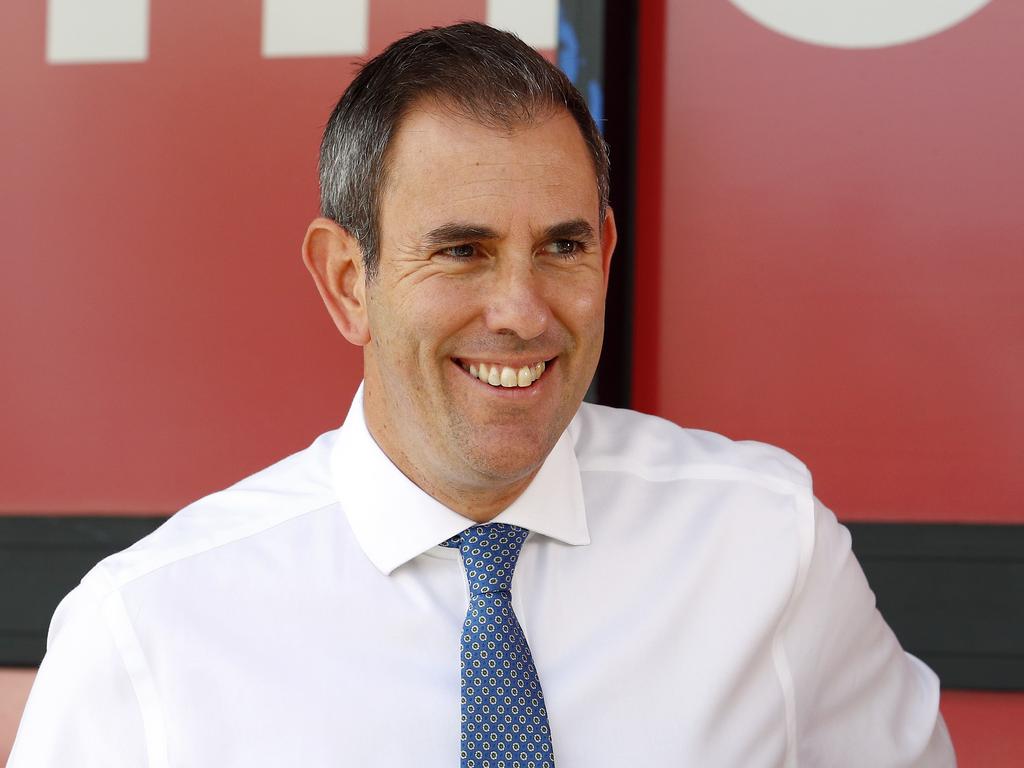Lowe blow: RBA unsure how high to go
Reserve Bank governor Philip Lowe admitted he is ‘unsure’ how much longer mortgage holders will have to help tackle ‘way too high’ inflation.

Reserve Bank governor Philip Lowe says there is no end in sight to interest rate rises, and he is “unsure” how much more pain mortgage holders will bear in order to tame “way too high” inflation.
With the official cash rate at 3.35 per cent, Dr Lowe used his first public appearance of the year to acknowledge that monetary policy settings were already restrictive and having a dampening effect on the economy, but that further hikes were needed.
While he had an open mind about how many more rate rises would be required, Dr Lowe clarified that “I don’t think we are at the peak yet” and the RBA board was assessing the need for increasing rates at every meeting. “How far we have to go up, I don’t know,” Dr Lowe told a Senate estimates hearing in Canberra.
“It’s going to depend on the inflation data, the resilience of spending, the strength of the global economy, and what’s happening with prices and wages.”
Amid a firestorm of criticism in the wake of nine straight hikes, Dr Lowe said he had received “many letters from people who are in distress, and I read those with a heavy heart”.
“We talk about that every board meeting – how this is really, really hurting some households,” he said. “But we’ve also talked about how if we don’t get on top of this, the pain will be worse.
“It’s not a nice message. But that’s the reality we face. And we have to face into that reality.”

Commonwealth Bank chief executive Matt Comyn revealed on Wednesday that borrowers were only feeling about 50 per cent of the impact of the rapid-fire cash rate increases so far, due to the higher than usual number of fixed-rate mortgages and a delay in the transmission of the hikes to variable loans.
“There’s another 50 per cent to come,” Mr Comyn said. “By July that number will be 75 per cent and if you assume a cash rate of 3.85 per cent – let’s say the last change in the cash rate is in April – then it will take several months for that to come through … probably by the end of the calendar year it will be about 80 or 85 per cent of the full effect.
“We actually anticipate we’re going to increasingly see a flow through in terms of consumption into other parts of the economy, but I think it will be gradual.”
Dr Lowe said he did not think he had been unfairly attacked over the central bank’s management of monetary policy, and that it was the bank’s job to take unpopular decisions in the national interest. He said he did not have any intention to step down before his term ended in September. “I wouldn’t say it’s unfair – it’s the job of the central bank to control inflation,” Dr Lowe said. “I’ve got to contain inflation and I’ve got to convince the community that we are serious about that. That’s our job and it’s unpopular. And I accept that. That’s why the central bank is independent in its decision-making from the political process. It’s easier for me to do unpopular things than it is for some of you (politicians). I’m not complaining. It’s our job.”
Dr Lowe cautioned against pay demands that matched the current high level of inflation at 7.8 per cent, warning a wage-price spiral was “one risk” to the outlook although it needed to be viewed in perspective. “We don’t really see evidence of that occurring,” he said. “We think that growth in the wage price index will get up to 4 per cent, maybe a bit higher, but probably not go much higher than that.”
Despite the challenges of sticking to the “narrow path” of taming inflation without crunching the economy, Dr Lowe said he still believed the central bank could manage a “soft landing” for the economy.
He warned that a slowing economy would lift unemployment by about a percentage point to 4.5 per cent next year, and predicted that this would be enough to bring inflation down to 3 per cent over the next couple of years.

Dr Lowe endorsed the Albanese government’s budget management, saying he saw the fiscal settings as “broadly neutral” and not problematic in the context of the inflation fight.
Treasury secretary Steven Kennedy, also speaking at Senate estimates, echoed Dr Lowe’s view that a steady forecast deficit of 2 per cent of GDP over the forward estimates showed fiscal policy was not adding to demand or the pressure for more rate hikes. Dr Kennedy also revealed that Treasury had estimated the government’s coal and gas price caps would lower inflation by half a percentage point in the year to June 2024, and that the planned federal-state energy rebates would subtract a further quarter of a point.
Treasury’s October forecasts for retail gas price growth had been for 20 per cent in this financial year and the next, but the forecast was now for an 18 per cent lift in 2022-23 and a much more modest 4 per cent rise in 2023-24.
Dr Kennedy said easing global and domestic supply chain pressures had taken the heat out of the price for some goods, including petrol and building costs, but the echoes of last year’s big cost increases were still reverberating across the economy. He said 85 per cent of consumer prices were still growing by more than 3 per cent.
Despite the prospect of higher rates than anticipated late last year, Dr Kennedy said the October budget forecast for economic growth to slow to 1.5 per cent growth through this financial year was unchanged, although details would be tweaked in May.
Amid climbing concerns of a recession later this year, Dr Lowe said he still believed the RBA would be able to bring inflation back under control without crashing the economy.
While the high point for consumer price growth was still expected to be 7.8 per cent in December, Dr Lowe said that inflation was “way too high and needs to come down”.
In answer to media speculation that ongoing rate rises would trigger a recession, Dr Lowe said the risks were “two-sided”.
“There is a risk that the tightening of policy that’s taken place does dampen spending more than we think. We don’t have a perfectly clear crystal ball,” he said. “But there is a risk on the other side. There is a risk that we have not yet done enough with interest rates and spending is more resilient, and that inflation stays high.”
“If inflation stays high, it’s very damaging for the economy. It worsens income inequality. It makes it harder for businesses to plan, and erodes the value of peoples’ savings.”







To join the conversation, please log in. Don't have an account? Register
Join the conversation, you are commenting as Logout